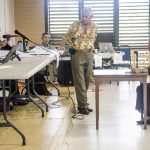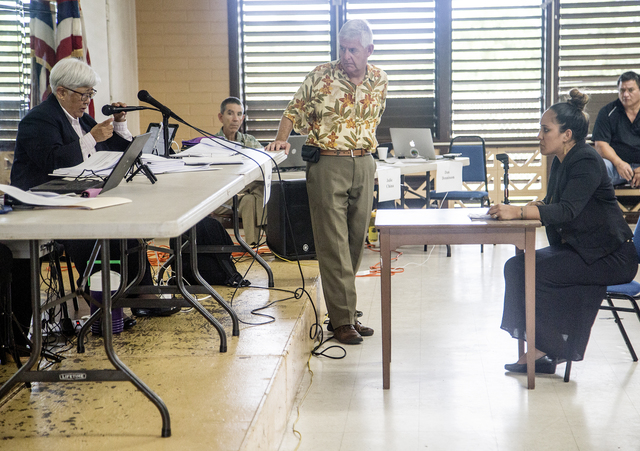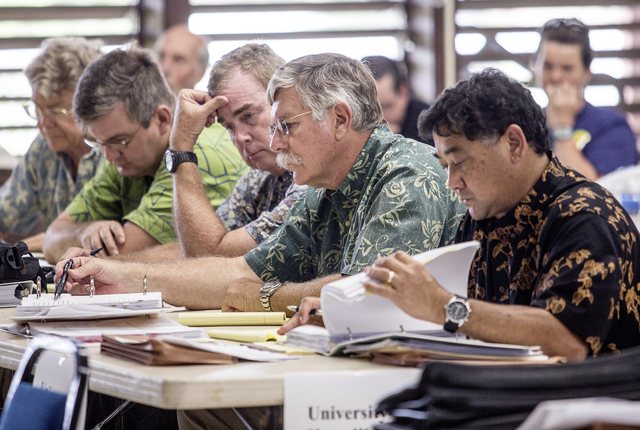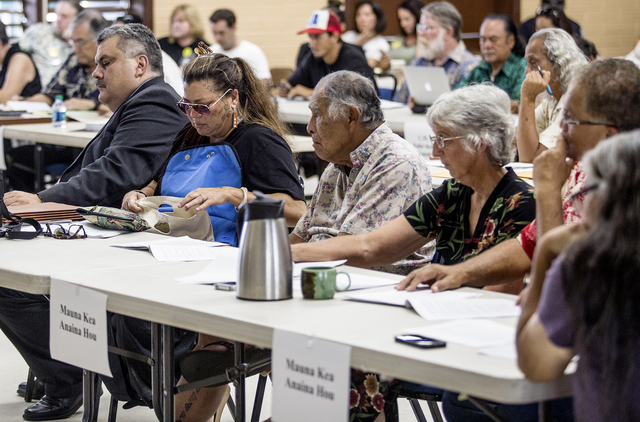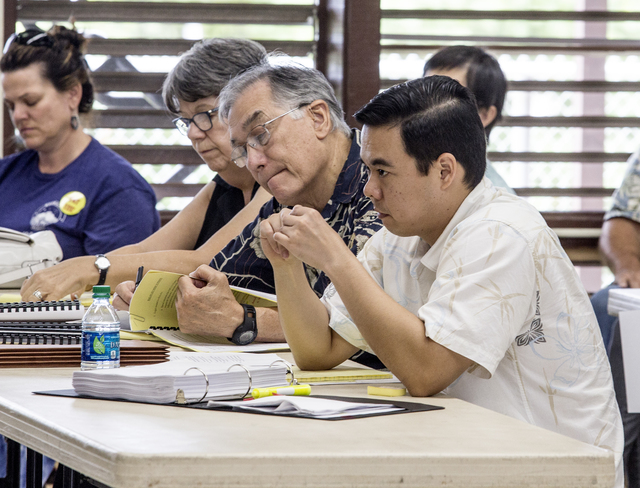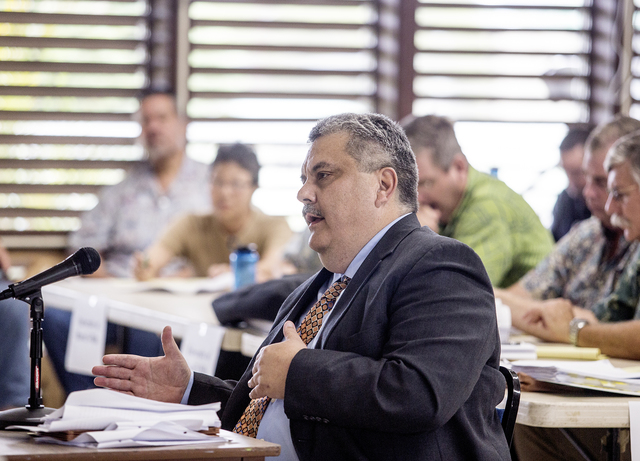Riki May Amano, hearings officer for the Thirty Meter Telescope contested case, waded through procedural questions and assertions of Hawaiian sovereignty during a hearing Friday in Hilo.
But some of the weightier motions seeking to dismiss TMT’s land use permit application and disqualify the state’s legal counsel were deferred until another meeting Aug. 12.
At that hearing, also slated to be at the YMCA building on Lanikaula Street in Hilo, Amano expects to schedule a site visit to Mauna Kea and possibly set dates for evidentiary hearings, which she expects to start in October.
It’s not clear how long that process will take. So far, the witness list submitted by each of the approximately two dozen parties has reached up to 125, though some might be duplicates. Amano indicated some witnesses might be dismissed.
“If they are repetitious or irrelevant witnesses, they will not be allowed to testify,” she said.
Officials representing TMT International Observatory said they want to know whether they can regain their land use permit by the end of this year or early next year. The target for resuming construction is April 2018, three years after protesters, many of whom consider the mountain sacred, halted land clearing near the summit.
That was followed by the state Supreme Court remanding TMT’s land use permit in December, setting in motion a new contested case. Justices ruled the state Board of Land and Natural Resources erred when it voted to approve the permit before the previous contested case in 2011.
Friday’s hearing was the first in Hilo since Amano accepted 18 new parties to the contested case, a quasi-judicial process, during a meeting in a cramped state conference room in June.
The YMCA space was nearly full, despite offering larger digs, with a blend of activists, astronomers and business community representatives attending.
With many of the parties representing themselves, the hearing at times was bogged down with confusion about the process to file and respond to motions.
While the contested case will determine whether TMT receives the right to resume construction on the mountain, a lot of the focus Friday was on Hawaii’s political history. For several parties, those issues can’t be separated.
“We come to you to seek justice,” said Stephanie Tabbada. She added that “genocide” and “war crimes” were being committed against Native Hawaiians.
Several argued the annexation of Hawaii by the United States was illegal and that the Hawaiian Kingdom still exists.
“The burden of proof is on the applicant to provide proof Mauna Kea is in the state of Hawaii,” said Maelani Lee.
But Amano said those are political questions that she can’t address during this process. Sometimes, that point had to be repeated.
“That’s not my kuleana,” she said.
Amano dismissed several of those related motions and others seeking time extensions. Challenges to her selection as hearings officer would have to be handled by BLNR, she said.
With many of those issues set aside, Amano intends to devote much of the Aug. 12 hearing to motions filed by Richard Wurdeman, attorney for the original six contested case petitioners.
His motions include striking TMT’s land use permit application and dismissing legal counsel for the state.
They weren’t handled during Friday’s hearing because Wurdeman said he wasn’t served documents submitted by the state in response.
He argues TMT’s application is flawed because the 2010 document is signed by TMT Observatory Corp., not TMT International Observatory, which is the observatory’s new entity.
Wurdeman also says the state’s legal counsel is not impartial and has taken on advocacy roles.
A separate motion from Perpetuating Unique Educational Opportunities Inc., a pro-TMT Hawaiian group, to set the issues to be addressed in the contested case also will be heard during the next meeting.
Mehana Kihoi, who protested against TMT on the mountain last year, discussed a motion to remove PUEO from the contested case. She said their interests are already covered by TMT and the University of Hawaii at Hilo, the permit applicant, and that they can’t prove an injury.
Amano stood by her decision to let the group participate.
Kihoi said she meant no disrespect to the PUEO members.
“I will not let this process divide our community and the people,” she said.
Email Tom Callis at tcallis@hawaiitribune-herald.com.
